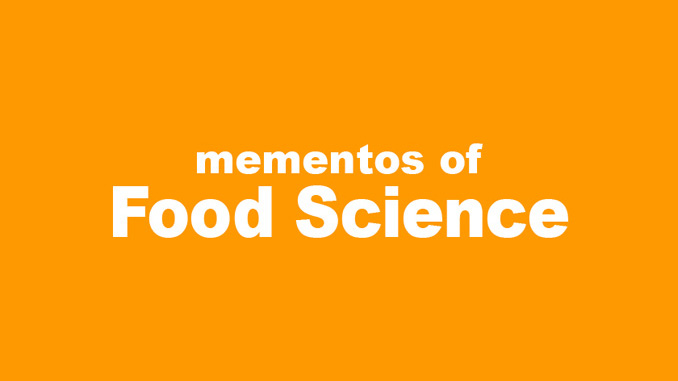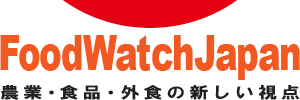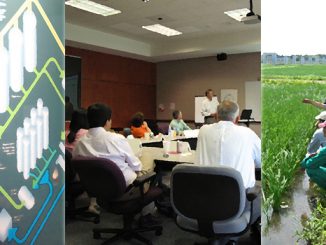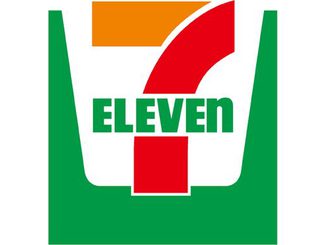
Barack Obama大統領は今年3月、米国食品医薬品局(FDA)新局長に元ニューヨーク市保健局長Margaret Hamburg氏を任命した。任命をするにあたっては、米国上院の承認を必要とする。その発表時に大統領は、ピーナッツバターのサルモネラ菌汚染問題やそのほかの食品由来の問題の発生を受けて、米国食品安全制度を「国民の健康に有害」と発言した。そして、食品安全制度改善に向け諮問委員会を設置し提言を受けることにした。米国議会には、かねてより食品行政の一本化に関心を示す人々がいる。ワシントンでは、繰り返し登場するテーマなのだ。現在の政治の風向きは食品行政一本化の方向に動いている。しかし、その議論は主に次の2点によって減速するであろう。政治的利益を含む食品安全制度の複雑さ、そして、米国国土安全保障省(DHS)設立から得られた経験、つまりDHSはハリケーン・カトリーナに対応できなかった。
Recently President Barack Obama nominated former New York City Health Commissioner Margret Hamburg to be the new FDA Commissioner. In making that announcement, one that requires Senate confirmation, the President called the U.S. food safety system “a hazard to public health” in the wake of the Salmonella tainted peanut butter episode and other food-borne outbreaks. He established an advisory group to recommend improvements to the food safety system. Some in the Congress have shown interest in establishing a single food agency, a recurring theme in Washington. Current political winds suggest that serious attention will be given to creating a single food agency. However, the debate may be moderated by the complexity, including political interests, of the food safety system and by the government’s experience from establishing a single Department of Homeland Security (DHS); an effort that failed in the response to Hurricane Katrina.
ワシントンの政界では、食品行政一本化の議論が定期的に持ち上がる。通常その話は、関連省庁の間での噂が元になっていることが多い。FDAは20世紀初頭、化学局という米国農務省(USDA)の一部局であったところから、USDAの中にFDAをUSDAに戻そうという動きがあるという具合だ。時代は変わり、「変化」を基本方針に掲げる新大統領とそして昨今のホウレンソウ、ハラペーニョ・ペッパー、ピーナッツバターなどの食品由来の問題の数々が、食品行政一本化の議論に通常よりもっと「致しかたなし」という雰囲気を作り出した。では、米国の食品行政を一本化するには何が必要か。
食品安全確保に関する機能はさまざまな省庁にまたがっている。USDAは食肉、鶏肉および鶏卵を規制しており食肉加工施設の検査を行っている。一方、同省が規制する食品に使われる添加物の安全性評価についてはFDAに依存している。FDAは、そのほかすべての食品を監視している。それには、農作物由来の食品や食品添加物・着色料が含まれる。また食品製造施設の検査を、米国各地にあるFDAの地方事務所が行っている。動物用医薬品(ペット用・家畜動物用共に)と飼料それに飼料添加物も、FDAの規制下にある。
農薬を承認・登録するのは米国環境保護庁(EPA)だ。それには食品に使用される農薬も含まれる。しかしEPAが設立される1970年まではFDAの役割であった。とはいっても、食品に使用される農薬については、EPAが設定した残留基準を実施する役割を担うのは引き続きFDAだ。米国疾病管理予防センター(CDC)は、伝染病や食品由来の感染症の疫学的研究などを行っている。加えて、州政府や地方の保健当局が、食料供給をまもるための多くの役割を担い実施している。
米国に輸出されてくる食製品もほかの製品同様、米国税関が検査する。米国税関は今やDHSの一部だ。従って、食品安全に関わる責務は複数の連邦政府省庁にまたがり、さらに州政府や地方当局によっても支えられている。そして多くの場合、そういった責務は食品ではない物質の安全性に関係した同じような責務と絡み合ったりしている。
食品行政一本化の取り組みは、利害関係者がそれぞれに異なる利益を追求するという環境の中で、あちらこちらに散らばる役割を統合しなければならないのだ。単独の組織を設立することは、そこに政治的意志が存在するのであれば、不可能なことではない。しかし、単に単一の食品庁を作るというだけでは十分ではない。その組織が取り組むべきあらゆる問題及びその解決策を事前に十分考え抜かなければならない。
それは2005年に米国の南東部がハリケーン・カトリーナに襲われた時(特にニューオーリンズとその市民に壊滅的な被害をもたらした)、新設されたDHSが機能しなかった教訓による。1500万人もの人々が影響を受けた。2000人近い人々の命と40万人の職が奪われた。連邦政府の対応は、主としてDHSの役割だが、絶望的に能力の欠けたものと世間から評価された。DHSは、テロリストの攻撃や自然災害から国土を護るために複数の政府組織から切り取られた機能を縫い合わせた継ぎはぎである。しかし、カトリーナの結果から、これから発生する自然災害に取り組むためにDHSの能力を高める追加対策が必要であることは明らかとなった。私は、なにも食品行政一本化に反対している訳ではない。取られるべき作業の複雑さを強調したいだけだ。
FDAは2006年に創立100周年を迎えた。米国の食料供給をまもる上で概ね確かな実績を残してきた。しかしながら、今日の食生産・流通システムはさらにもっと複雑である。それがただでさえ限られたFDAのリソースを締めつけている。
最近の食中毒事件は、食品基準を順守させる上でのFDAの脆弱さを浮き彫りにした。先だって、ヨーロッパ人の同僚たちからピーナッツバターの一件でFDAは信用を失ってしまったではないかとたしなめられた。そして、米国も欧州食品安全機関(EFSA)や日本の食品安全委員会のような食品安全庁を作ったらどうだと言う。その提案は近視眼的であるし、FDAが直面している主要問題の解決策とはならないだろう。
EFSAも食品安全委員会もリスク評価とリスク管理に関する機能と決定を分けそれぞれに独立性を持たせるために設立された。EFSAも食品安全委員会も執行権力は持たない。FDAの場合その主な問題とは 複雑さを増す世界規模のフードシステムを監視し遵守させるには、FDAの現在の限られたリソースでは困難極まりないというところにある。
大統領の諮問委員会からじきに出される米国の食品安全制度を改善するための提言は、細心の注意を受けるであろう。オバマ政権の最終的な決断は、調査結果に強く影響されたものとなろう。FDAの新局長(承認されれば)の役割もまた重要なものとなろう。ニュース報道によれば、Dr. Hamburgは傑出した保健衛生のプロであり、優れた指導者であるという。Hamburg氏は、農業団体や複数の米国政府省庁、食品産業、公益団体、そして世論などさまざまな利害関係者らの利益競合に中において現政権のポジションを主張していく議論の中心に身を置くことになる。現在の雲行きでは、FDAのリソースを単に増やすだけという解決策にはなりえそうにない。とすると米国の食品安全制度のより根本的な変化が、議論の最終結論として導かれるのかもしれない。
Periodically discussions emerge “inside the Belt Way” (political circles in Washington) regarding the creation of a single food safety agency. Usually the dialogue is based on rumors among the affected agencies. Often it seems that some in the U.S. Department of Agriculture (USDA) are interested in returning FDA to USDA where FDA originated as the Bureau of Chemistry early in the last Century. Times have changed. A new President with an agenda for “change” and several recent, serious food borne outbreaks affecting foods such as spinach, Jalapeno peppers and peanut butter have created an atmosphere that gives more inertia than usual to the debate about a single food agency. What would be required to establish a single food agency in the U.S.?
Functions related to assuring food safety are spread across various agencies. USDA regulates the safety of meat, poultry and egg products and conducts inspections of meat processing facilities. USDA relies on FDA to determine the safety of additives used in products it regulates. FDA has oversight over all other foods, including those derived from agricultural crops, and food and color additives. FDA conducts inspections of food production facilities through its offices located around the U.S. FDA also regulates the drugs used for animals: both food use and non-food use animals (pets and farm animals), as well as feed and feed additives.
The Environmental Protection Agency (EPA) approves and registers all pesticides, including those used in food, a responsibility that once belonged to FDA until 1970 when EPA was established. However, FDA retains the responsibility to enforce tolerances set by EPA for pesticides in food. The Centers for Disease Control & Prevention (CDC) carry out epidemiological studies for infectious diseases and food borne infections among other responsibilities. In addition state and local health authorities carry out many responsibilities related to protecting the food supply.
Food products, like other products, that are exported to the U.S. are inspected by the U.S. Customs, now part of DHS. Thus, responsibilities for food safety are distributed across Federal agencies supported by state and local authorities and in many cases are intertwined with similar responsibilities for the safety of non-food substances.
An effort to create a single food safety agency would require consolidation of this patch work of responsibilities in an environment where stakeholders often have different interests. Creating a single entity is not an impossible task, if the political will exists, but merely forming a single food agency may not be sufficient, unless the solution is well thought out.
Such was the case for the newly established DHS in 2005 when Hurricane Katrina struck the southeastern U.S. inflecting a devastating blow, especially to New Orleans and its residents. 15 million people were affected; nearly 2000 lives were lost, as well as 400,000 jobs. The Federal response, primarily the responsibility of DHS, was widely viewed as hopelessly inadequate. The new Department had been formed from a patchwork of functions carved from other government entities that were stitched together to protect the country from terrorist attacks as well as natural disasters, but in the aftermath of Katrina it was clear that additional measures were needed to strengthen DHS’s ability to respond to disasters in the future. This is not to argue against a single food agency but to emphasize the complexity of the task should it be undertaken.
The FDA celebrated its 100th birthday in 2006 and has a generally sound record of protecting the U.S. food supply. Nevertheless, today’s food production and distribution system is far more complicated, straining FDA’s resources that have always been limited.
Recent food borne outbreaks have highlighted the weakness in FDA’s ability to enforce food standards. Recently, some European colleagues chided me that FDA was losing credibility in the wake of the peanut butter episode and suggested that the U.S. establish a food safety agency similar to the European Food Safety Authority (EFSA) or the Japanese Food Safety Commission (FSC). The suggestion is shortsighted and would not address the main problem facing FDA.
Both EFSA and FSC were established to separate and make independent the functions and decisions regarding risk assessment and risk management. Neither EFSA nor FSC has enforcement authority. In FDA’s case, the major problem involves monitoring and compliance of an increasingly complex, global food system compounded by FDA’s limited resources.
Recommendations for improving the U.S. food safety system that will be forthcoming from the President’s advisory panel can be expected to receive careful attention. The Administration’s ultimate approach will be strongly influenced by the findings. The role of the new Commissioner of FDA, once confirmed, will also be important. According to news reports, Dr. Hamburg is an outstanding health professional and skillful leader. She will be at the center of the debate pressing the Administration’s position subject to possible competing interests from various stakeholders, such as the agriculture community, other U.S. government agencies, the food industry, public interest groups, and the public. It seems unlikely that the solution will be merely to increase resources for FDA given the current climate, and more substantial changes in the U.S. food safety system may be the eventual outcome of the debate.
※このコラムは「FoodScience」(日経BP社)で発表され、同サイト閉鎖後に筆者の了解を得て「FoodWatchJapan」で無償公開しているものです。




